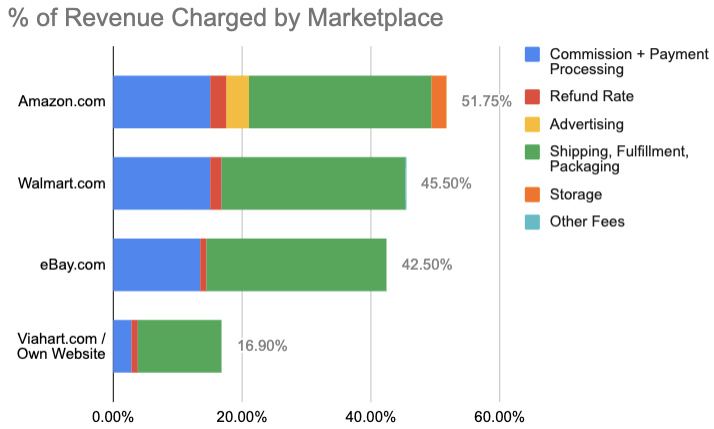
Short thread on people and trust:
The first place I started doing business in was China and I knew I was going to get screwed because it was “China”, a lane of fake products and scams. I had heard the horror stories.
I was right in I did get screwed.
The first place I started doing business in was China and I knew I was going to get screwed because it was “China”, a lane of fake products and scams. I had heard the horror stories.
I was right in I did get screwed.
A few years later I came back to the United States and I tried working with a US manufacturer for something that I was previously making in China after my Chinese supplier had screwed me.
Boy was it expensive!
Boy was it expensive!
And something very strange happened. I had paid a lot of money for a mold made by an American mold maker and the mold was not working as it should and I told my American supplier that.
And he said “no you’re wrong.”
And he said “no you’re wrong.”
I was pretty sure I was right and after some contemplation I realized that...
Here I was in America and I was getting screwed! I thought this was only supposed to happen in China!
Here I was in America and I was getting screwed! I thought this was only supposed to happen in China!
I realized that the difference between China and America was the price. You could get screwed in either country but at least in China, when you did, it cost 1/5th as much.
So that was manufacturing only I thought, a dirty grimy industry full of unsavory people.
But as I got more experience, I got screwed in more places. First it was some Europeans, then some Canadians (yes, it’s possible!). People of all stripes and colors. It didn’t matter.
But as I got more experience, I got screwed in more places. First it was some Europeans, then some Canadians (yes, it’s possible!). People of all stripes and colors. It didn’t matter.
Something that I found very surprising that I’ve come to learn recently is that the threat of someone losing their reputation in a superficially trusted network that people consider prestigious was not a deterrent to bad behavior.
In other words, even if you belonged to the same church, temple, country club, university alumni network, friend group, whatever...people would still screw you!
Amazing I thought, people will literally happily shoot themselves in the foot for a few extra bucks in the short term.
Amazing I thought, people will literally happily shoot themselves in the foot for a few extra bucks in the short term.
So after 11 years of intense trial by fire experience in the business world I will tell you this:
It does not matter if someone is from China or America or Africa or a lawyer or an accountant or they went to Brown or Bronx Community College.
It does not matter if someone is from China or America or Africa or a lawyer or an accountant or they went to Brown or Bronx Community College.
Some percentage of the time by some percentage of people you’re going to get screwed because people are not only dishonest but they are shortsighted. They don’t realize how doing that hurts them in the long run. So my advice for you is, no matter how you think about trust, make
sure that the level of due diligence & self protection you engage in us directly proportional not to how well someone is credentialed, but instead to HOW MUCH THEY CAN HARM YOU.
It’s not about the probability of getting screwed by xyz, it’s the damage they’ll do when it happens.
It’s not about the probability of getting screwed by xyz, it’s the damage they’ll do when it happens.
• • •
Missing some Tweet in this thread? You can try to
force a refresh








